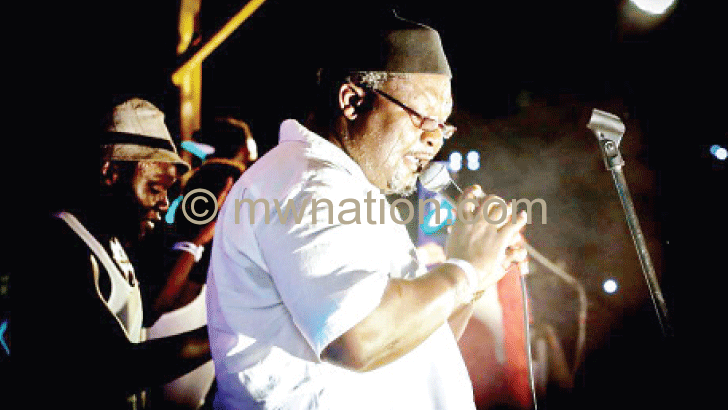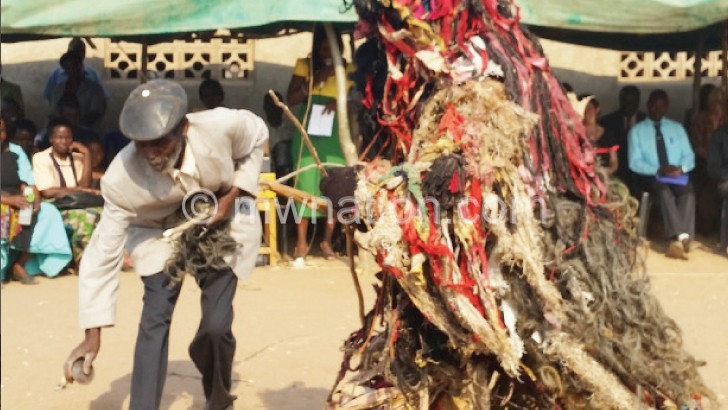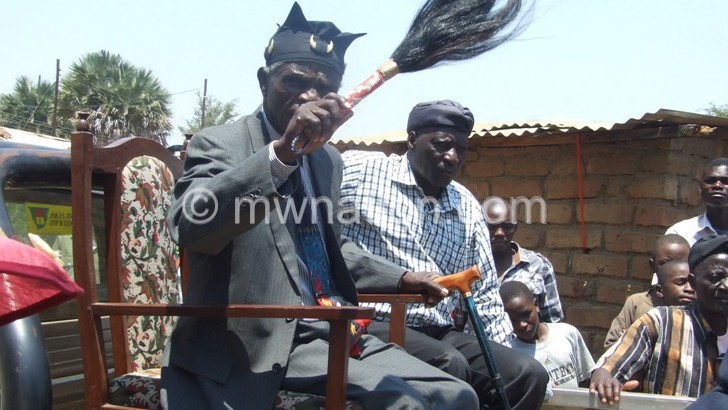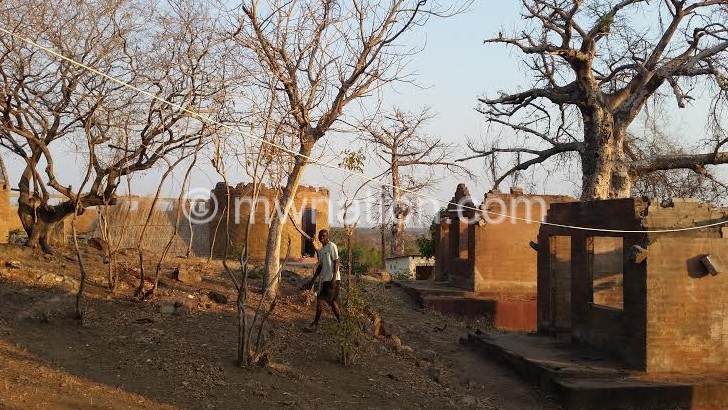Artists fuel homosexuality debate
It’s Christmas Eve and a concert is underway at Zitherepano Pub in Mangochi, a rustic remote pub on south-eastern shoreline of Lake Malawi. It’s 4.30 am on the stunning palm-fringed setting along Africa’s third-largest fresh-water lake. Stage lights are dying. Sunrise rays are gaining sway. An outspoken musician is on the mic. Hundreds of impassioned fans cram the dance floor, shaking off sleep, weariness and intoxication.
It’s hot, really hot. A stench of sweat, tobacco and dust is overpowering when the party music suddenly stops.
The patrons might have filed out quietly, but something has happened that will accelerate musicians’ war on homosexuality in the country.

Gays in the house!
So what made the music stop? The singer in question—Lucius Band—later explained: “I had two songs to wrap up when two boys came to the edge of my stage, kissing and caressing. I couldn’t continue singing.”
Lucius then took to Facebook to warn against further homosexual acts around him.
“Remember I’m not musically funded by any Western country. My donors—God the Father, The son and Holy Ghost—have attached a ‘no sodomy’ condition to their funding. So I don’t want to violate the deal,” he wrote.
The musician, christened ‘Soldier of the Poor’, is generally considered a voice of the voiceless.
When the music stopped, he was singing Kamtengo, a crowd favourite critical of the suspected killings of three ministers and a lawmaker during Hastings Kamuzu Banda’s dictatorship.
Kisses and caresses are not unusual in the country’s gig culture.
Asked why he by-passed his security detail when he allegedly spotted the gays, Lucius Banda said: “They went overboard and people would have killed the gays straightaway if the guards had not intervened.”
Widespread perspectives hold homosexuality hazardous to the cultural and religious norms of Malawians who market themselves as a ‘God-fearing Nation’.
It is against this backdrop a state-run broadcaster in 2006 banned Yakumbuyo, a hit by Zambian hitmaker Danny which underscores the stance of Lucius and many Malawian artists: woe to those getting rich in the name of homosexuality.
Like the censors, the artists echo the country’s ‘see no evil’ response to homosexuality which they consider a taboo, a Western agenda.
The critical voices include Black Missionaries, the country’s largest touring band whose Bambo Nowa alludes to a sinful generation wiped out by floods in the biblical times of Noah’s Ark. The Chileka-based reggae band, whose hometown was the setting of the engagement of the first confessed gay couple in Malawi, pleads for atonement.
Youthful poet Robert Chiwamba prescribes “cruel death” for homosexuals and their sponsors. The title of his recent vernacular rant, Takana Mathanyula, literally means “We say no to homosexuality.
Lucius Banda’s controversial show came barely two weeks after the detention of a gay couple in Lilongwe. They walked free amid pressure from donors and human rights bodies, with Minister of Justice Samuel Tembenu promising to review anti-homosexuality laws.
As the confrontation continues, the artists and the rest of the citizenry seem to think ‘culture’ is an abstract totality of traditional practices inherited from their ancestors.
People don’t seem to understand that ‘culture’ is an ever-changing way of life, including foreign influences.
Homosexuality is not in our culture, they say.
“We must protect our children from this thing. It’s like refuelling a car via an exhaust pipe,” Lucius Banda insists.
Fanning homophobia
Similarly, Malawi is one of 32 African countries with penal laws that criminalise homosexuality as an “unnatural practice” and “public indecency”.
Activist Gift Trapence, who heads Centre for the Development of Peoples (Cedep), blames the laws for “fuelling State-sponsored homophobia”.
In 2014, the civil society organisation recorded 76 human rights violations against homosexuals, especially beatings, arbitrary arrests, exclusion from health services and excommunications.
He urges artists to tone down their homophobic statements, blaming them for worsening intolerance of sexual minorities.
Malawian artists are no Beatles, but they are highly regarded as culture warriors.
Their silence on the documented atrocities is not surprising. It’s deafening.
No Malawian artist has publicly backed calls for minority rights.
“Most of us launched our careers in church choirs, so it’s difficult to side with homosexuals,” Lucius Banda suggests.
Mob think
Breaking the silence, Facebook postings of one reggae artist in Lilongwe question numerous unnatural sexual activities happening in culturally acceptable relationships and public displays of sex involving men and women.
Typical of muted voices, the vocalist of a rising reggae band opted for anonymity when asked for his take on the trending resistance to homosexuality.
He wishes that artists would take a stand and use their agenda setting power to make a positive change.
To the muted voice, artists are supposed to swim upstream, asking difficult questions.
“They must not only think outside the box, but also tear it apart,” he said.
He wants creative minds to stand up and challenge deepening stereotypes overclouding topical issues, including homosexuality.
The subdued voice believes artists are Malawians like any other.
“They are shaped by society and they shape social values,” he stressed.
He likens the artists who denounce homosexuality during live shows and in their offerings to mob justice.
He warns: “A thrower of a single stone may not appreciate that they have killed a person.”





